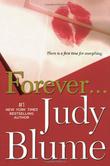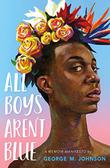This year has seen a wave of book bans and challenges that shows no signs of subsiding. In the first six months of 2022, the country experienced hundreds of attempts to remove books—many featuring LGBTQ+ characters or themes—from libraries and schools. (We published a timeline as part of our Pride Issue coverage in June.) The summer and fall saw this trend continue, with right-wing activists raising challenges to a wide variety of books. Here are some notable incidents from the second half of 2022:
Aug. 2: The largest school district in Utah pulled 52 books from library shelves after a new law that prohibited “sensitive materials” in schools, HB 374, went into effect in May. The literary nonprofit PEN America noted that 42% of the removed books “feature LBGTQ+ characters and/or themes.” The list of removed books included several that have been frequently challenged in schools and libraries, including Judy Blume’s Forever…, Juno Dawson’s This Book Is Gay, Jonathan Evison’s Lawn Boy, and David Levithan’s Two Boys Kissing. The school board later backed away from the decision, saying the books would be restricted but not removed. In October, the Salt Lake Tribune reported that since the law was enacted, parents in Utah have filed at least 280—though likely many more—complaints about books.
“sensitive materials” in schools, HB 374, went into effect in May. The literary nonprofit PEN America noted that 42% of the removed books “feature LBGTQ+ characters and/or themes.” The list of removed books included several that have been frequently challenged in schools and libraries, including Judy Blume’s Forever…, Juno Dawson’s This Book Is Gay, Jonathan Evison’s Lawn Boy, and David Levithan’s Two Boys Kissing. The school board later backed away from the decision, saying the books would be restricted but not removed. In October, the Salt Lake Tribune reported that since the law was enacted, parents in Utah have filed at least 280—though likely many more—complaints about books.
Aug. 5: Voters in Jamestown Township, Michigan, declined to renew millage—property tax revenue—for the town’s Patmos Library after staff refused to remove three LGBTQ+ books from its shelves: Gender Queer by Maia Kobabe, Kiss Number 8 by Colleen AF Venable (illustrated by Ellen T. Crenshaw), and Spinning by Tillie Walden. After the vote, romance author Nora Roberts donated $50,000 to the library in a bid to keep its doors open, saying she’d give more if needed. In November, another millage vote was held and failed again, threatening the library’s continued existence.
Aug. 9: Josh Kimbrell, a Republican state senator in South Carolina, demanded that a Spartanburg County public library ban LGBTQ+ themed books, including Michael Joosten and Wednesday Holmes’ Pride 1 2 3, Joana Estrela and Jay Hulme’s My Own Way: Celebrating Gender Freedom for Kids, and Cassandra Jules Corrigan and Jem Milton’s The Pronoun Book: She, He, They, and Me!. Book Riot reports that Kimbrell denied charges of censorship, saying, “I’m not trying to ban any books. I’m trying to stop an indoctrination campaign against kids. Any person in this county that has children knows full well what I’m talking about.”
Aug. 10: A school board in the western Maine town of Dixfield banned Maia Kobabe’s Gender Queer from its high school library, the Rumford Falls Times reported, with a state senator saying the graphic memoir is an example of “classrooms…being used not to educate but to indoctrinate our children with radical ideologies, racially divisive theories and distorted views on human sexuality.” The Maine Writers & Publishers Alliance later announced it was raising money to give away copies of the book to students in the town.
Aug. 19: A Texas school district removed more than 40 books from its libraries, the Texas Tribune reported, including the Bible and a graphic adaptation of Anne Frank’s diary. Other books pulled from shelves included Toni Morrison’s The Bluest Eye, Jazz Jennings’ I Am Jazz, Maia Kobabe’s Gender Queer, Rupi Kaur’s milk and honey, and George M. Johnson’s All Boys Aren’t Blue. Less than two weeks later, the Bible and Anne Frank’s diary were reinstated, but some of the books, Keller’s school board president said, would never return. The following month, the city of Keller ordered its public library to delete a social media post promoting Banned Books Week.
including the Bible and a graphic adaptation of Anne Frank’s diary. Other books pulled from shelves included Toni Morrison’s The Bluest Eye, Jazz Jennings’ I Am Jazz, Maia Kobabe’s Gender Queer, Rupi Kaur’s milk and honey, and George M. Johnson’s All Boys Aren’t Blue. Less than two weeks later, the Bible and Anne Frank’s diary were reinstated, but some of the books, Keller’s school board president said, would never return. The following month, the city of Keller ordered its public library to delete a social media post promoting Banned Books Week.
Aug. 23: A high school English teacher in Norman, Oklahoma, was placed on leave after posting in her classroom signs reading “books the state doesn’t want you to read,” accompanied by a QR code that pointed students to the website for Books Unbanned, a Brooklyn Public Library anti-censorship resource. The teacher, Summer Boismier, later resigned.
Aug. 23: Conservative activists in Bonners Ferry, Idaho, made headlines when they asked the town library to ban more than 400 books—none of which the library actually had on its shelves, NBC News reported. The list of books that the activists wanted preemptively banned was from a conservative group called Growing Freedom for Idaho and contained numerous titles from LGBTQ+ authors and authors of color, including Alex Gino, Jason Reynolds, Jazz Jennings, Tim Federle, and Malinda Lo. One library trustee noted, “What they are looking for us to do is say we will never get a book that offends them personally, which is pretty hard to define, and not really the point of the library.”
Aug. 23: A woman in Katy, Texas, filed a criminal complaint over the book Flamer, Mike Curato’s graphic novel about a queer boy coming to terms with his identity, claiming that a high school library that stocked it was violating a Texas law that prohibits “harmful material” in the state’s schools. The criminal complaint didn’t go anywhere, but the woman said that she’d be reporting the book to the Texas Rangers.
Sept. 13: Author John Green took to TikTok to object to a school board candidate in his hometown of Orlando who wanted to ban Green’s novel Looking for Alaska, calling it “filth.” “You know what’s weird? When one of the candidates for school board in the school district where you were once a student wants to ban your first novel from all schools and libraries in that district,” Green said in the video. In November, Alicia Farrant, the candidate in question, won election to the school board with 53% of the vote.
who wanted to ban Green’s novel Looking for Alaska, calling it “filth.” “You know what’s weird? When one of the candidates for school board in the school district where you were once a student wants to ban your first novel from all schools and libraries in that district,” Green said in the video. In November, Alicia Farrant, the candidate in question, won election to the school board with 53% of the vote.
Sept. 16: The school board in Dearborn, Michigan, removed six books from circulation, including George M. Johnson’s All Boys Aren’t Blue, Alice Sebold’s The Lovely Bones, Rainbow Rowell’s Eleanor & Park, and Casey McQuiston’s Red, White & Royal Blue. The decision led to a raucous school board meeting attended by a large group of protesters who supported removing the books, some carrying signs reading “Keep your dirty books in the closet” and “Homosexuality big sin.”
Sept. 19: The American Library Association and PEN America both released reports finding that book bans and challenges have spiked dramatically in 2022. ALA President Lessa Kanani'opua Pelayo-Lozada said that the book bans reflect “coordinated, national efforts to silence marginalized or historically underrepresented voices and deprive all of us—young people, in particular—of the chance to explore a world beyond the confines of personal experience.”
Oct. 25: School administrators in Beaufort County, South Carolina, pulled 97 books from shelves, the Island Packet reported, after complaints from parents. The removed books included Jonathan Safran Foer’s Extremely Loud and Incredibly Close, Mike Curato’s Flamer, Becky Albertalli’s Leah on the Offbeat, and John Green’s Looking for Alaska. In an editorial in the newspaper The State, David Travis Bland slammed the school district for caving in to demands from parents, writing, “Since the 97 titles were pulled for review, the district is still receiving threats targeted at employees.…Of course the district is still receiving threats. That’s what bullies do when you don’t stand up to them. They keep bullying. Stand up for yourself Beaufort County School District. Stand up for your faculty and staff. Stand up for your students. Put the books back out.”
Michael Schaub, a journalist and regular contributor to NPR, lives near Austin, Texas.



































